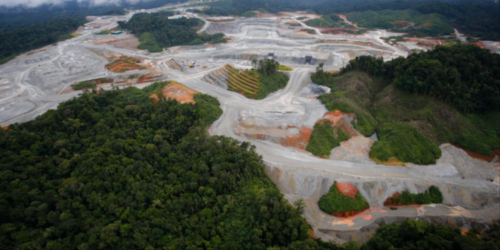First Quantum’s PANAMA Cobre Mining Contract Unconstitutional
¡VIVA República de Panamá!
In a significant development, Panama’s Supreme Court ruled on Tuesday November 28th, that Canadian miner First Quantum’s agreement to operate the Panama Cobre Mining Contract Unconstitutional. This decision, which came after months of legal challenges and ongoing protests, could have far-reaching implications for the future of the mine and the country’s mining industry.
The court’s ruling stems from a 2017 decision that declared the original mining law under which First Quantum operates the mine to be unconstitutional. The company subsequently renegotiated the contract with the Panamanian government, but critics argued that the new agreement did not address the underlying constitutional concerns.
The ruling puts First Quantum in a precarious position. The company could face significant financial losses if it is forced to halt operations at the Cobre Panama mine, which is one of the largest copper mines in the world. However, the company also has the option to pursue arbitration under international investment treaties, which could potentially award it substantial compensation.
The ruling has been met with mixed reactions.
Environmental groups and indigenous communities have welcomed the decision, arguing that it protects the environment and the rights of indigenous peoples. However, First Quantum has expressed disappointment with the ruling and has indicated that it will appeal to an international tribunal.
The decision is likely to have a significant impact on the future of mining in Panama. The government is now under pressure to review its mining regulations and ensure that they are in line with the constitution and the interests of the country’s citizens. This could lead to stricter environmental protections and a more equitable distribution of the benefits from mining.
A República de Panamá Landmark Decision Benefiting it’s Citizens!
Overall, the Supreme Court’s ruling in the First Quantum case is a landmark decision that has the potential to reshape the mining industry in Panama. It is a reminder that there is a strong public interest in ensuring that mining operations are conducted in a sustainable and responsible manner, and that governments have a duty to protect the rights of their citizens and the environment.
The Supreme Court’s ruling in the First Quantum case could positively affect Panamanians’ lives in several ways, including:
- Protecting the environment:

Protecting the environment The ruling could lead to stricter environmental protections, which would help to safeguard Panama’s natural resources and ecosystems. This would benefit all Panamanians, as it would help to ensure a cleaner and healthier environment for future generations.
- Promoting sustainable development: The ruling could also promote sustainable development in Panama. By ensuring that mining operations are conducted in a responsible manner, the government can help to ensure that the benefits of mining are shared more equitably among all Panamanians. This could lead to improved livelihoods for many Panamanians, as well as increased investment in infrastructure and social programs.
- Protecting the rights of indigenous peoples:

Protecting the rights of indigenous peoples The ruling could also help to protect the rights of indigenous peoples in Panama. Indigenous communities have long been marginalized and exploited by the mining industry, and the ruling could help to ensure that their rights are respected and protected. This could lead to improved living conditions and greater cultural autonomy for indigenous communities.

















One thought on “Supreme Court Declares First Quantum’s Panama Cobre Mining Contract Unconstitutional”
Comments are closed.